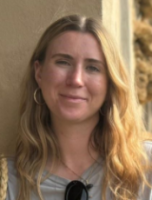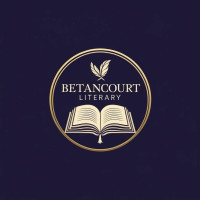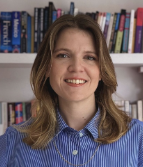
Writing Advice and Literary Wisdom from the Great E.B. White
lithub.com – Saturday July 12, 2025

E.B. White, beloved children’s author (Charlotte’s Web, Stuart Little, The Trumpet of the Swan), innovative and revered essayist, and co-editor of the indispensable The Elements of Style, celebrates a birthday today. He was born in Mount Vernon, New York, on July 11, 1899. A deeply private man, White, whose full name was Elwyn Brooks White (his Cornell University nickname was “Andy”), had an abiding love for nature and ecology, most evident in his children’s books and essays.
His first publication appeared in The New Yorker in 1925. He went on to become a contributing editor for the magazine in 1927; in this capacity he wrote over 1800 articles. He was credited by famed New Yorker editor William Shawn for inventing a new literary form—the magazine’s “Comment” essay: often personal, incorporating the writer’s first person experience, while also being critical and incisive, as well as accessible to a wide readership. E.B. White loved writing, and given his prolificacy across multiple genres, this versatile wordsmith had some sage advice when it came to craft. Here are some of his most interesting thoughts on writing, creativity, and the majesty of the written word.

Submission Grinder Delists Analog
locusmag.com – Saturday July 12, 2025

Analog Science Fiction & Fact has been delisted on The Submission Grinder due to new terms in the magazine’s recent contracts. Steven Salpeter of parent company Must Read Books has responded that they “are going to be in touch with the folks at the submission grinder to try to resolve the issue.”
According to the the listing, The Submission Grinder has concerns about Analog contract terms “including sublicensing to unnamed other publications, and waiving of moral rights”. This is consistent with the site’s FAQ, which includes “A publication asks for the right to sublicense the work to other publications without…specific approval from the author” and “A publication asks the writer to waive their ‘moral rights'” as possible reasons for delisting.

New Magazine Listing: Blackbox Manifold
firstwriter.com – Friday July 11, 2025

We welcome submissions of previously unpublished reviews, short essays, and poems, particularly poems with prose, narrative, or sequences in their sights, or poems with an environmental slant. We're particularly keen to have short essays on poetic sequences. We don’t accept work that is simultaneously being submitted elsewhere. Before sending us material, please familiarise yourself with the journal to see if your work will jostle well with the other texts we’ve published.

New Literary Agent Listing: Ciara McEllin
firstwriter.com – Thursday July 10, 2025

I read widely across book club, upmarket and literary fiction. Within these areas, I am drawn to novels that examine family and relationship dynamics, sexuality, identity, and vulnerability. I am keen to hear from writers who take a fresh approach to these themes, whether that be a new perspective on a traditional narrative or a focus on characters and voices that remain underrepresented. At the moment I am particularly eager to see: sexy, sensual and seductive stories that explore desire and sexual boundaries not often represented; an atmospheric and existential thriller; an intoxicating coming of-age-tale that captures the aliveness, intelligence and wildness of girlhood; stories exploring an Australia or Ireland that is rarely seen in literature. In nonfiction, I enjoy narrative, memoir and essay collections. I am interested in hearing from experts, academics, critics and journalists writing about society, culture and food, and I am excited by writers seeking to revise, reshape or revolutionise the conversation in their area of expertise.

New Publisher Listing: Red Planet Books
firstwriter.com – Wednesday July 9, 2025

An independent publishing company based in Cornwall specialising in books about music.

The Secrets to Writing Unforgettable Villains
nofilmschool.com – Tuesday July 8, 2025

When you're working on a screenplay, you spend so much time making sure the hero pops out and the plot makes sense that oftentimes, the villains can be left behind.
But if you want a movie or a TV show to really stand out in the audience's mind, or attract some great actors, you need the villain to be unforgettable.
Today, I want to look into the YouTube video I watched about how screenwriter James A. Hurst works to create memorable villains.
Let's dive in.
Create an Unforgettable Villain
Look, screenwriting is hard. It can take me forever to finish a script and to really craft it in a way that connects with an audience.
So if people have "tricks" or "shortcuts" to do this stuff, I'm all ears. That's why I was pumped to watch this video.

New Literary Agency Listing: Betancourt Literary
firstwriter.com – Monday July 7, 2025

We believe powerful storytelling deserves powerful support. Our agency is dedicated to representing bold voices and unforgettable narratives in mystery, psychological thrillers, romance, women’s fiction, literary fiction, and select non-fiction.
The agency was founded by a USA Today bestselling mystery author and experienced publishing professional. She holds a bachelor's degree in Communications and is currently earning her J.D., bringing both creativity and legal insight to the business of books. Her many years of writing experience allows her to advocate strategically and compassionately for the authors she represents.
She created this agency with a single mission: to empower authors. Whether you're seeking your first publishing deal or are ready to elevate your career, we offer the transparency, guidance, and enthusiasm every writer deserves.
We don’t just shop books—we build careers.

New Literary Agent Listing: Gabrielle Demblon
firstwriter.com – Wednesday July 2, 2025

I’m looking for literary and upmarket fiction, particularly with queer themes or from unusual / underrepresented perspectives, as well as select thrillers and nonfiction. I’m open to debut authors at all life stages. I’m looking for literary speculative/high concept fiction from queer/female/transnational perspectives. In crime, I’m looking for a fun, pulpy thriller with a high concept twist or standout setting. In nonfiction, I’m drawn to popular science, politics, and true crime. I’m also looking to work with experts and influencers specialising in personal style, nutrition, psychology, relationships, personal finance, career guidance, parenting and alternative family formation.

Reading Force is delighted to welcome submissions from adults, children and young people to its 2025 Memoir Writing Competition
cobseo.org.uk – Monday June 30, 2025

Reading Force is delighted to welcome submissions from adults, children and young people to its 2025 Memoir Writing Competition. First prize is a publishing contract with Pen & Sword Ltd.
The shared-reading charity has launched its 2025 writing competition and warmly welcomes entries from anyone and everyone in the tri-service community, including spouses and partners, children and young people, serving personnel, and veterans. Entries can be submitted until 31st August and winners will be announced in January 2026.
Reading Force is thrilled to have launched another writing competition because they were so impressed and moved by the entries in their first competition in 2022, and wanted to give another opportunity for the Forces community to voice their stories – be they about moving home, memorable events in service, special friendships and relationships, children and young people’s experiences of military life, the ups and downs and everything between.

New Publisher Listing: Cicada
firstwriter.com – Monday June 30, 2025

A New York Times Award winning children’s book publisher based in London. We started out making adult art and design books, but now specialise in beautiful, high-end books for kids aged 4–11. We have an eclectic list that includes activity books, picture books and non-fiction.
Get the free newsletter | Submit a news item or article | Get Writers' News for your website





